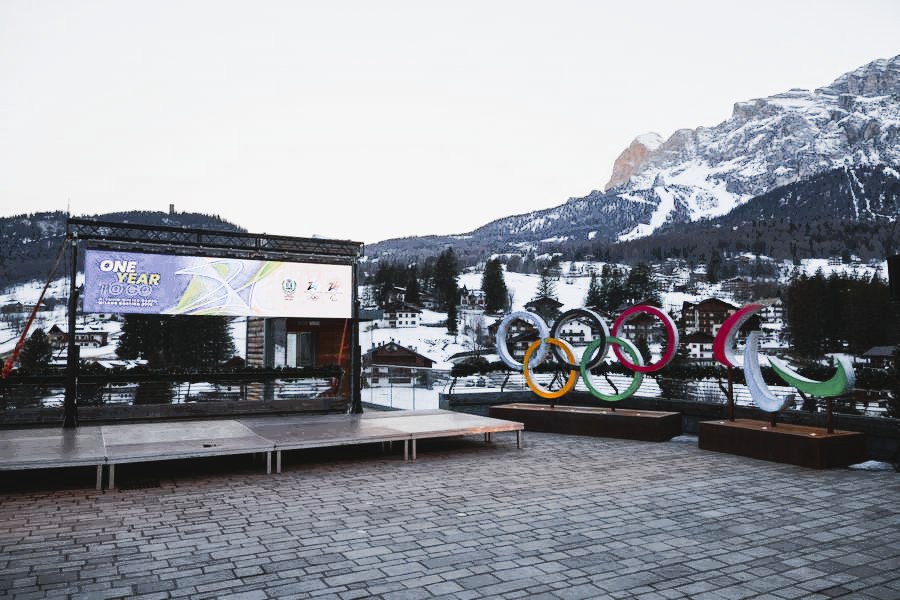FIS Council Bars Russian and Belarusian Athletes from Olympic Qualification for Milano Cortina 2026
4 min read
FIS Council Takes a Firm Stand
The International Ski and Snowboard Federation (FIS) has officially voted against allowing the participation of Russian and Belarusian athletes in qualification events for the Milano Cortina 2026 Winter Olympic Games and the Paralympic Games.
In a decision announced after a council meeting on Tuesday, FIS confirmed that it would not implement the Individual Neutral Athlete (AIN) system proposed by the International Olympic Committee (IOC). The ruling effectively bars competitors from the two nations from taking part in any FIS-sanctioned qualification process for the upcoming Games.
The IOC’s Proposal and FIS’s Autonomy
The International Olympic Committee had introduced the AIN framework as a potential route for athletes from Russia and Belarus to compete at the Olympics under neutral status meaning without national symbols, anthems, or flags.
However, under IOC rules, it is up to each International Federation to determine whether to adopt or reject the system for its own qualification events. The FIS Council, exercising that independence, has opted not to provide a pathway for such athletes at this time.
This move highlights the ongoing divisions within the global sporting community over the participation of athletes from nations involved in the ongoing conflict in Ukraine.
Decision Rooted in Integrity and Safety
In explaining its stance, FIS underscored that the decision was guided by both ethical considerations and practical implications. While the federation reaffirmed its commitment to neutrality and inclusion, it stated that maintaining integrity, safety, and fair competition remains paramount.
The council noted that allowing AIN participation could create logistical complications, political tensions, and potential security risks at qualification events issues that could undermine the overall fairness and spirit of international sport.
Context: The Ongoing Conflict and Sports Sanctions
Since Russia’s invasion of Ukraine in February 2022, international sports bodies have faced growing pressure to exclude Russian and Belarusian athletes from global competitions.
Omega Tv UK celebrates ONE YEAR ANNIVERSARY, we wish to thank all our viewers for helping us reach this milestone.
Happy 1st anniversary to Omega TV UK!.
Many federations, including FIS, suspended these athletes immediately after the invasion. Over the past two years, discussions have continued about whether and under what conditions they might return to international competition.
While some sports including tennis and fencing have allowed individual participation under neutral status, winter sports federations have generally taken a more restrictive approach, citing solidarity with Ukraine and security concerns in European venues.
Reactions from the Sporting Community
The FIS decision has drawn mixed reactions across the sporting world. Advocates for Ukrainian athletes praised the ruling as a sign of moral clarity and consistency, arguing that any participation by Russian or Belarusian athletes would send the wrong message during an ongoing war.
Critics, however, say the ban punishes athletes who may have no direct involvement in political decisions. They argue that the Olympic Charter promotes inclusion and unity through sport, and that allowing individuals to compete as neutrals could have upheld those principles.
Despite differing views, FIS maintains that its top priority is the welfare and integrity of its competitions leading up to the Milano Cortina 2026 Games.
Implications for Olympic Qualification

The ruling means that Russian and Belarusian athletes will remain ineligible to earn qualification points or participate in World Cup events that form part of the Olympic selection process.
Unless the FIS Council revises its position before the end of the qualification cycle, these athletes will be absent from the skiing and snowboarding events in Italy. This could have significant competitive implications, as Russian athletes have traditionally been strong contenders in disciplines such as cross-country skiing, biathlon, and freestyle snowboarding.
The decision also places additional pressure on the International Olympic Committee, which continues to seek a balance between fairness, inclusion, and the global call for accountability.
Looking Ahead to Milano Cortina 2026
The Milano Cortina Winter Games, scheduled for February 6–22, 2026, will be the first Olympics jointly hosted by two Italian cities. Preparations are in full swing, with organisers aiming to deliver a sustainable, inclusive event that celebrates winter sport across the Alpine region.
However, with the FIS ruling now confirmed, the debate over the participation of Russian and Belarusian athletes is expected to continue in the months ahead potentially influencing decisions by other federations still considering their stance.
For now, FIS’s decision sends a clear message: the pathway to the 2026 Winter Olympics will remain closed to competitors from Russia and Belarus, reinforcing the organisation’s stand on integrity, fairness, and the values of sport.






